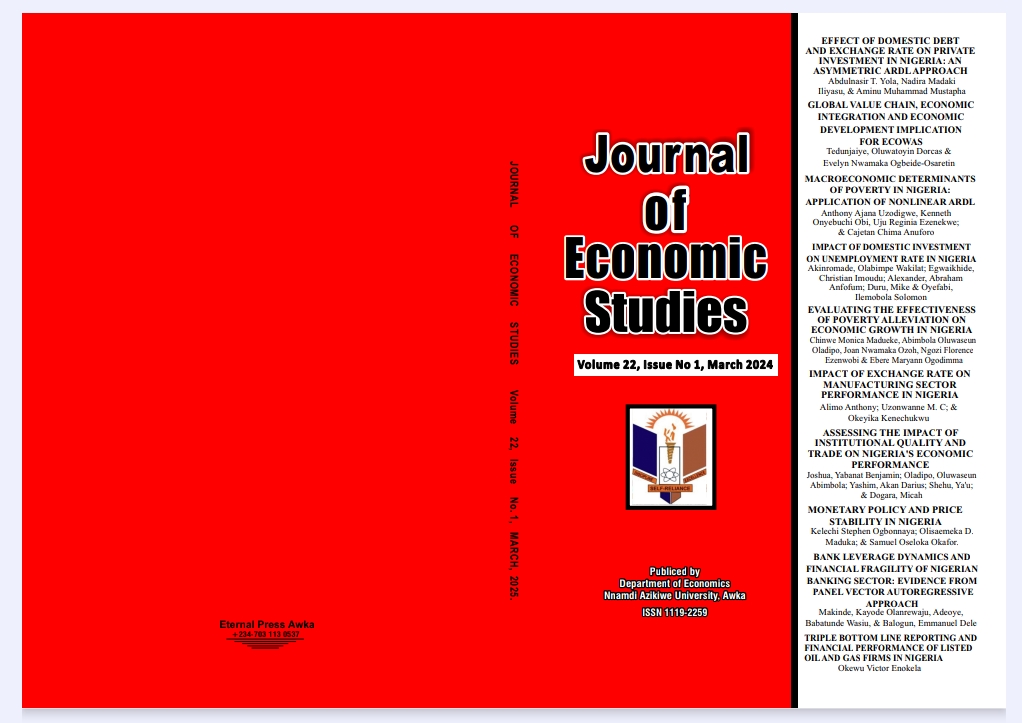EFFECT OF DOMESTIC DEBT AND EXCHANGE RATE ON PRIVATE INVESTMENT IN NIGERIA
AN ASYMMETRIC ARDL APPROACH
Keywords:
private investment, exchange rate, domestic debt, asymmetric, NigeriaAbstract
Policy formulation in Nigeria has been affected by inconsistent and possibly nonlinear impacts
of domestic debt and exchange rate fluctuations on private investment in Nigeria, thus the need
for a study that investigate the disproportionate effects of exchange rate and domestic debt on
private investment in Nigeria, using the asymmetric Nonlinear Autoregressive Distributed Lag
(NARDL) approach. The findings reveal significant asymmetries in the relationships, with
positive shocks in exchange rate and domestic debt exerting stronger effects on private
investment compared to negative shocks. In the long run, exchange rate appreciation, increased
domestic debt, and economic growth positively influence private investment, while negative
shocks are largely insignificant. The results for the short run estimates reveal positive exchange
rate shocks and negative domestic debt shocks significantly impact private investment, having -0.288 as the error correction term, translating to a steady progression towards long-run equilibrium. These results accentuate the pivotal role of macroeconomic stability in promoting investment-friendly conditions. Recommendations from the findings supports policies that
prioritize exchange rate stability in the mitigation of the adverse effect of volatility.
Strengthening monetary and fiscal policies to maintain a stable and competitive naira will
encourage investment by reducing uncertainties and the cost of imported capital goods.


